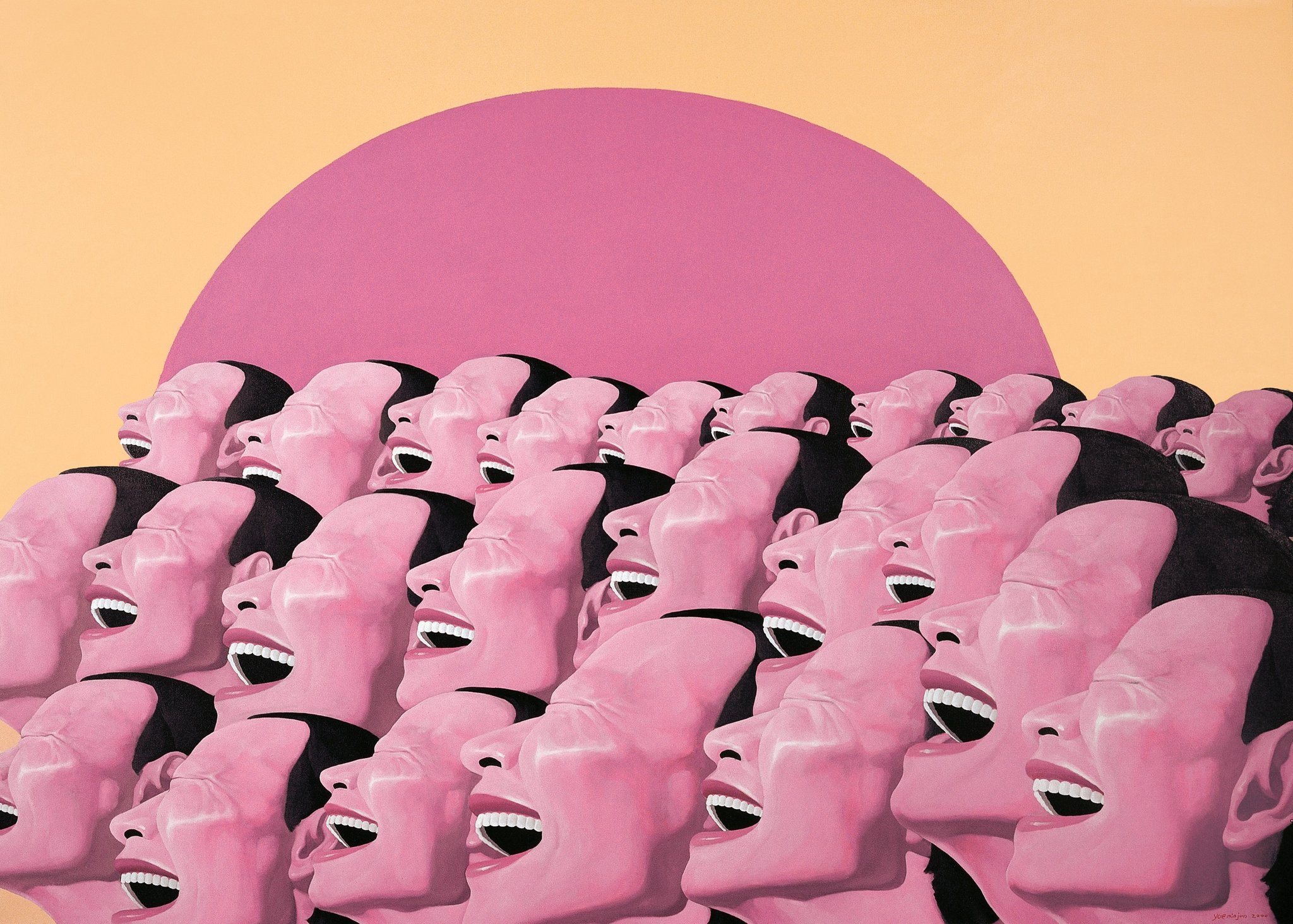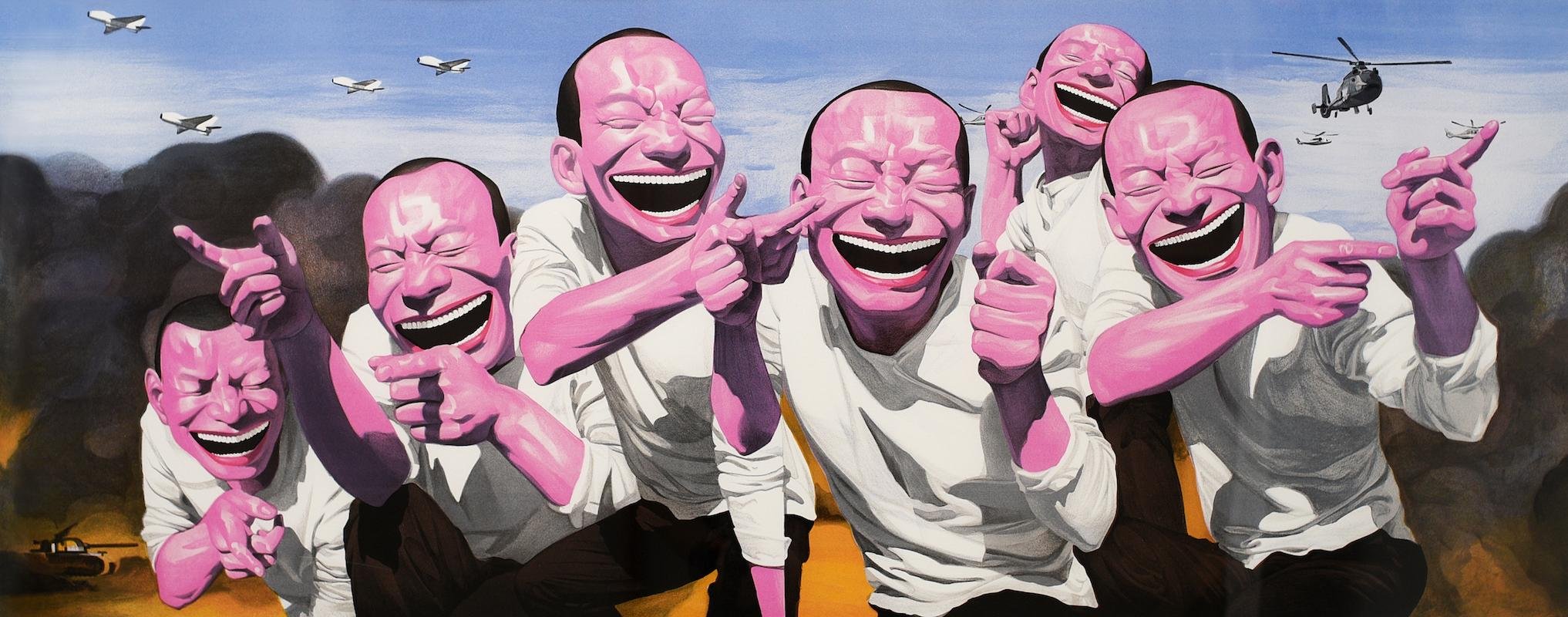Yue Minjun: Cynical Realism Within Contemporary China

Few contemporary artists are more known for their self-portraits than Yue Minjun, whose oil paintings of himself as a pink-skinned, laughing figure have placed him among the most prominent Chinese artists of his generation.
Growing up during the Cultural Revolution and studying during the time of student protests in the 1980s resulted in Yue Minjun's artwork presenting humorous and simultaneously disturbing depictions of his life and experiences in China.
Yue is identified as a leading figure of Cynical Realism, a contemporary movement in Chinese art that emerged in the 1990s as a reaction against the Tiananmen Square massacre of 1989. Influenced by Surrealism and Pop art, Cynical Realism employes humour to convey disenchantment with the communist regime. Despite Yue's own success during that decade and his signature iconography, the artist himself has denied allegiance to any particular school or movement.
'There's nothing cynical or absurd in what I do'.
Yue Minjun
Yue's single most established iconography is without a doubt the self-portraits of him laughing which are open to several interpretations. The laughter appears innocuous in some works, such as in Sky (1997). In Garbage Hill (2003), in contrast, the tower of laughing faces verges on the grotesque and sinister.
Minjun, however, lays emphasis on the fact that his self-portraits should not be observed in a traditional sense, but rather as different depictions of his character similar to the roles that actor take on in movies.
Yue Minjun's art also draws a lot of inspiration from Chinese history and well-known Western paintings, especially those of Édouard Manet. Execution (1995), arguably Yue's most famous work, bases its composition on the French painter's The Execution of Emperor Maximilian (1867–1869).
Yue Minjun first claimed international spotlight in 1999 when he participated in the 48th Venice Biennale. Since then, he has exhibited internationally participating in numerous museum shows, as well as major exhibition events, paintings of his ranking up to HKD $50m at auctions.














